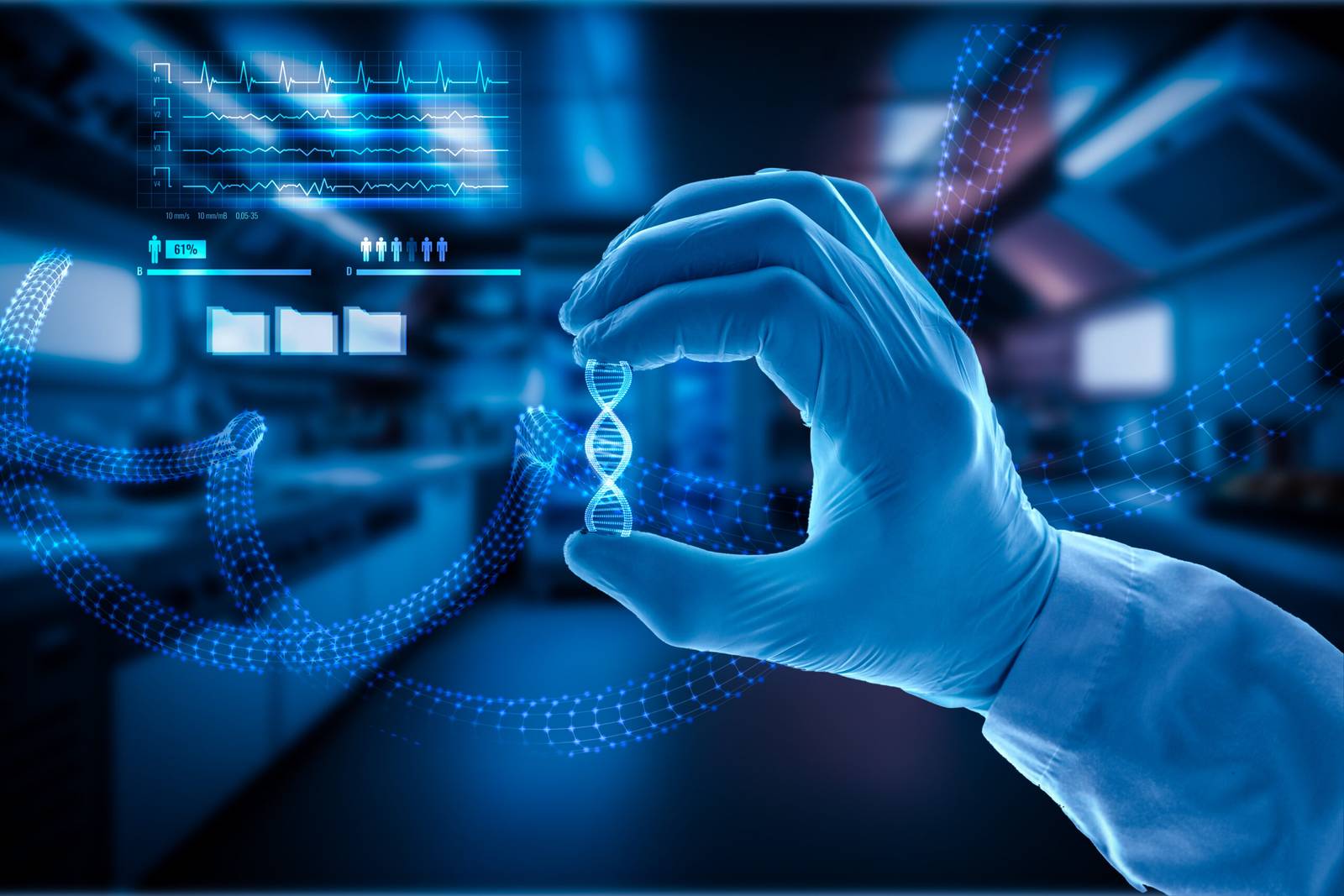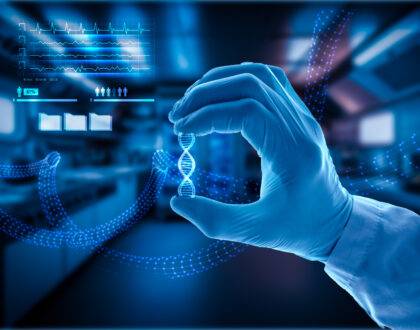Biotechnology Breakthroughs: Healing and Beyond

by Web Digital
Biotechnology has been at the forefront of scientific innovation, leading to numerous breakthroughs in the field of healthcare and medicine. These breakthroughs have not only transformed the way we treat diseases but have also extended their influence to various other aspects of our lives. In this article, we will explore some of the remarkable biotechnology breakthroughs that have not only revolutionized the healthcare industry but also found applications beyond healing.
Biotechnology and Personalized Healthcare
One of the most significant biotechnology breakthroughs in recent years has been the advent of genomic medicine. The Human Genome Project, completed in 2003, provided the complete sequence of the human genome, opening up a treasure trove of information about our genetic makeup. This breakthrough has allowed scientists and healthcare professionals to delve deep into our genes and understand the role they play in health and disease.
The ability to sequence an individual’s genome has paved the way for personalized healthcare. With a patient’s genetic information at hand, doctors can tailor treatments to a person’s unique genetic profile, increasing the efficacy of treatments and reducing adverse effects. This approach is particularly important in the field of oncology, where targeted therapies have improved cancer treatment outcomes significantly.
CRISPR-Cas9 Gene Editing
The discovery and development of the CRISPR-Cas9 gene editing technology have been nothing short of revolutionary. This biotechnology breakthrough allows scientists to precisely edit the DNA of living organisms, including humans. CRISPR-Cas9 has the potential to correct genetic defects, treat inherited diseases, and even modify genes to enhance certain traits.
While the ethical implications of gene editing in humans are still being debated, the technology holds tremendous promise for the treatment of genetic disorders and the development of new therapies. Beyond healthcare, CRISPR-Cas9 has applications in agriculture, allowing scientists to create crops that are more resistant to pests and diseases, potentially addressing food security issues.
Biotechnology and Monoclonal Antibodies
The development of biopharmaceuticals and monoclonal antibodies has transformed the pharmaceutical industry. Unlike traditional small-molecule drugs, biopharmaceuticals are large molecules derived from living organisms. Monoclonal antibodies, a type of biopharmaceutical, have become invaluable in treating various diseases, including cancer and autoimmune disorders.
Monoclonal antibodies work by targeting specific proteins or cells in the body, thereby providing a highly targeted and effective treatment approach. Biotechnology has enabled the production of these complex molecules at a large scale, making them more accessible to patients in need. Additionally, the technology behind biopharmaceuticals has expanded beyond healthcare, with applications in the development of industrial enzymes and biofuels.
Tissue Engineering and Regenerative Medicine
Biotechnology has made remarkable strides in the field of tissue engineering and regenerative medicine. This innovative approach involves growing replacement tissues and organs in the laboratory, offering hope to individuals in need of transplants. Scientists have successfully developed artificial skin, heart valves, and even bladders using these techniques.
Beyond healing, tissue engineering has applications in cosmetic and reconstructive surgery, allowing patients to receive more natural and personalized solutions. Furthermore, it is being explored in the development of animal-free meat, potentially addressing ethical and environmental concerns in the food industry.
Vaccines and mRNA Technology
The rapid development of COVID-19 vaccines, such as the Pfizer-BioNTech and Moderna vaccines, showcased the power of mRNA (messenger RNA) technology in vaccine development. These vaccines, developed in record time, were a testament to the agility and potential of biotechnology. mRNA vaccines work by introducing a small piece of genetic material that instructs cells to produce a harmless spike protein found on the virus’s surface, triggering an immune response.
This breakthrough not only allowed for the swift development of COVID-19 vaccines but also holds promise for the creation of vaccines for other infectious diseases. The mRNA technology can be adapted quickly to address emerging threats, potentially revolutionizing the field of immunization.
Synthetic Biology and Biofuels
Synthetic biology involves designing and constructing biological components, devices, and systems for useful purposes. This emerging field has opened up opportunities for creating custom organisms and biological systems to address various challenges. One notable application of synthetic biology is in the production of biofuels.
Scientists are engineering microorganisms to convert plant-based feedstocks into biofuels, which are more environmentally friendly than traditional fossil fuels. These biofuels have the potential to reduce greenhouse gas emissions and mitigate the impact of climate change. Additionally, synthetic biology has applications in the production of biodegradable materials, such as plastics, which can help reduce plastic pollution.
Biotechnology in Environmental Conservation
Biotechnology is also playing a significant role in environmental conservation and sustainability. One example is the use of genetically modified organisms (GMOs) to address environmental challenges. GMOs have been developed to clean up oil spills, remove pollutants from water, and restore damaged ecosystems.
Biotechnology is also being utilized in agriculture to develop crops that are more resilient to climate change and pests, ultimately increasing food security. These genetically modified crops can require fewer pesticides and less water, helping to reduce the environmental impact of agriculture.
Neurotechnology and Brain-Computer Interfaces
Biotechnology has not only focused on physical health but also on mental well-being. Neurotechnology and brain-computer interfaces are innovative fields that hold promise for patients with neurological disorders and individuals seeking to enhance their cognitive abilities.
Brain-computer interfaces enable direct communication between the brain and external devices, offering potential solutions for individuals with paralysis, and allowing them to control computers or prosthetic limbs. This technology could also be used to enhance cognitive abilities, potentially opening up new possibilities for human-computer interaction.
In conclusion, biotechnology breakthroughs have had a profound impact on healthcare and medicine, extending their reach to various other areas of our lives. These innovations have not only improved our ability to treat diseases but have also found applications in agriculture, environmental conservation, and beyond. As the field of biotechnology continues to advance, we can expect even more remarkable breakthroughs that will shape the future of healthcare and our world. It is an exciting time for biotechnology, as it continues to heal and redefine our understanding of what is possible in the realm of science and technology.
Recommended Posts

The Role of AI in Biotechnology Research
November 28, 2023

Quantum Sensors: Revolutionizing Data Collection
November 23, 2023

The Psychology of Color in Branding
October 31, 2023
